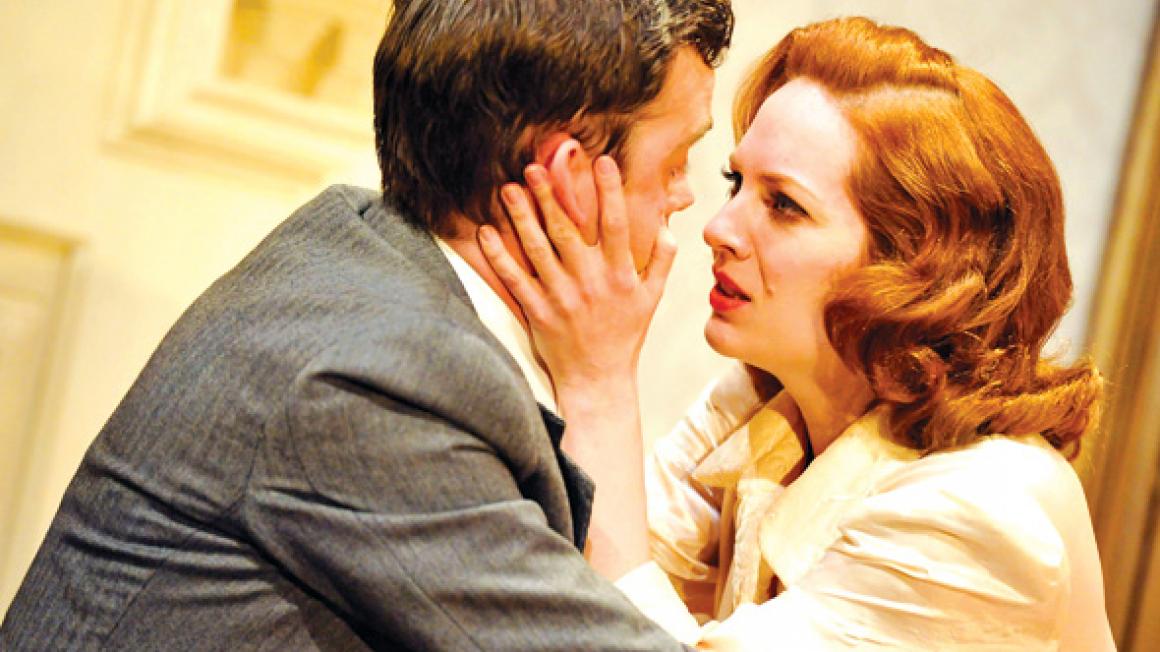BEFORE THE PARTY
The upper classes were able to eat out in restaurants and leave the dirty stuff to the servants, but middle-class families, like the Skinners in Rodney Ackland’s glorious play, were faced with the moral dilemma of the period. Set in 1949, Aubrey Skinner, admirably played by Michael Thomas, and his wife Blanche, the mesmerising Stella Gonet, are social mountaineers on a mission; a garden party packed to the gills with the great and not so good. But how to get there without petrol? How bendy are morals when they conflict with aspirations? Quite bendy.
Most things could be obtained at the time from young men, often ex-soldiers, given the collective moniker ‘spiv’ by the playwright Bill Naughton. When the Skinners’ recently widowed daughter, Laura, returns from Africa, she arrives with her own spiv, new fiancé, David. Katherine Parkinson’s portrayal of the young woman keen to leave her past (and mourning clothes) behind her is beguiling, hypnotic even, and dispels any memory of her as the feckless red-headed receptionist in the TV series Doc Martin.
Michelle Terry is perfect as Kathleen, the thin, uptight, frozen-featured, unmarried sister overfl owing with bile and venom at every turn. Matthew Dunster’s decision to set the play in Laura’s expansive bedroom hints at the possibility of a farce but the actual result is one of subtle exposure.
Although he achieved remarkable early success throughout the 1930s and 1940s, Ackland’s star was snuffed out by the 1950s. This play is a poignant reminder of theatre’s loss. Both hysterically funny, yet unnerving, it exposes the political and sexual undercurrents raging through those who intended to prosper, yet whose inverted snobbery compelled them to sit in judgement. The maxim, live and let live, did not apply. On walking in to discover David standing, fully clothed, in her sister’s bedroom, Kathleen crisply proclaims: ‘You’re not in West Africa now, Laura: you’re in Uffingham.’ Glorious stuff.
Until 11 May. Almeida Theatre, Almeida Street, London N1: 020-7359 4404, www.almeida.co.uk



